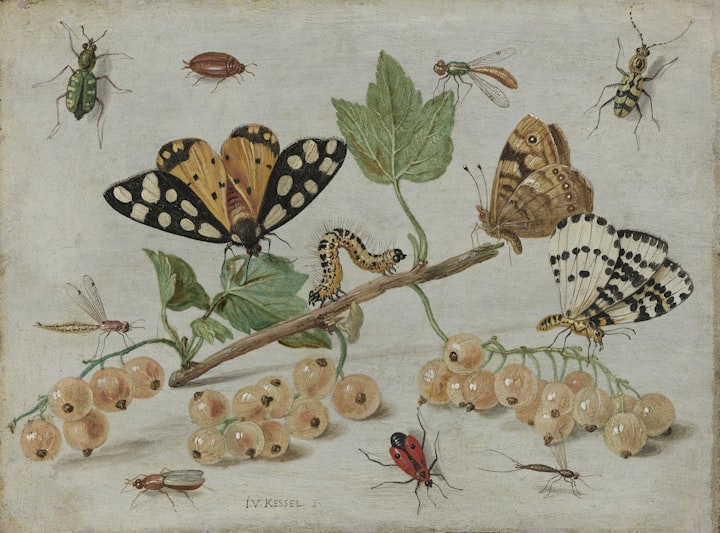The Rise of Entomology
Introducing Insects as a Sustainable Food Source
Recently, there has been a growing curiosity in introducing insects as a food source. While it may seem unusual, insects are a highly nutritious and sustainable food source. Entomology, or eating insects, has been a part of many cultures for centuries.
Insects are a highly efficient source of protein, containing all the essential amino acids needed for a healthy diet. They also have beneficial fats, vitamins, and minerals. Additionally, many insects are easy to farm, requiring far less space and resources than traditional livestock.
One of the primary benefits of entomology is its sustainability. Traditional livestock farming is a leading cause of deforestation, greenhouse gas emissions, and water pollution. In contrast, insects require significantly less land, water, and feed to produce the same amount of protein. This makes them an ideal food source for a rapidly growing population with increasing demand for protein.
Entomology is also a cost-effective solution to combat food insecurity. Insects are readily available and easily harvested, making them a viable food option for people in developing countries.
Despite the many benefits of entomology, there are still cultural and psychological barriers to overcome. Many people in Western cultures view insects as pests, and eating them is unappealing. However, entomology is gaining acceptance with the rise of sustainable living and increasing awareness of the environmental impact of food choices.
Many food companies are now introducing insect-based products, such as cricket flour, protein bars, and snacks. These products are often marketed as a sustainable and healthy alternative to traditional snacks and protein sources.
While entomology is still a relatively new concept in Western culture, it has the potential to be a significant player in the future of food. As we look for sustainable solutions to feed a growing population, introducing insects as a food source is one viable option. It’s time to change our perception of insects and embrace them as a sustainable and nutritious food source for the future.
While eating insects may be unfamiliar to many people in Western cultures, it is not a new concept in other parts of the world. Many cultures worldwide have a long history of eating insects, including Mexico, Thailand, and China.
Some people who have tried insect-based foods report that they taste similar to other protein sources, such as chicken or fish. However, some find eating insects unappealing, and the cultural and psychological barriers to entomology may take time to overcome.
Despite these challenges, many believe that introducing insects as a food source is essential to a more sustainable future. Proponents of entomology argue that it is a more efficient and environmentally friendly way to produce protein, and that it has the potential to help combat food insecurity and provide a more sustainable food source for a growing population.
As the interest in entomology grows, more research has been conducted on insects' nutritional value. To being a source of protein, insects also contain high levels of minerals such as iron and zinc, which are essential for overall health.
Moreover, insects are relatively easy and inexpensive to farm. Unlike traditional livestock, which requires large amounts of food, water, and space, insects can be raised in small spaces and fed on organic waste such as fruit and vegetable scraps. Insects such as meal worms, crickets, and grasshoppers can be farmed at scale and provide a sustainable source of protein for humans and livestock.
Despite the many benefits of entomology, there are also concerns about the safety and regulation of insect-based foods. Insects have the potential to carry diseases and parasites, and they must be farmed and processed in a way that minimizes these risks. Additionally, there currently needs to be standardized regulations for the farming and processing of insects for human consumption, which could create challenges for the industry as it grows.
However, some countries have already begun to introduce insects into their diets. In 2018, the European Union ruled that certain insects, such as crickets, meal worms, and locusts, could be sold as food. Insects are already a standard part of the diet in many African and Asian countries, and in some cases, they are considered a delicacy.
Overall, the introduction of insects as a food source has the potential to be a sustainable and environmentally friendly solution to the world’s growing demand for protein. While it may take time for entomology to become widely accepted in Western cultures, the benefits of this approach are too significant to ignore. With the proper regulations and education, it is possible that insects could become a more common and accepted part of our diets in the future.
In conclusion, introducing insects as a food source is gaining traction as we look for sustainable solutions to feed a growing population. While there are still cultural and psychological barriers to overcome, the benefits of entomology cannot be ignored. With the rise of sustainable living and increasing awareness of the environmental impact of food choices, we will likely see more insect-based products and food options in the years to come.
About the Creator
Nedelcu Alina
Life’s short, eat the cake 🍰







Comments
There are no comments for this story
Be the first to respond and start the conversation.